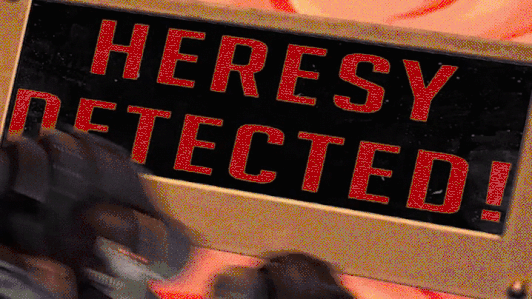-
Posts
4,031 -
Joined
-
Days Won
5
Content Type
Profiles
Forums
Events
Everything posted by DooDiligence
-
My friends say I'm frugal but I'm not buying it... would look great on a t-shirt with a simple, minimalist "CoBF" signature.
-
There's a workaround for issuing likes!
-
eMail Header Spoofing
-
It is related to user group membership.
-
They sure don't make it easy to find what you want on the support forum. https://invisioncommunity.com/forums/topic/444711-mix-advanced-reaction-settings-support-topic/
-
The devs do not make it easy to enable this feature. It seems to be a ranking system that's customizable so that a users reputation can be enhanced or dinged based on "reactions". https://invisioncommunity.com/forums/topic/440458-how-do-you-enable-reactions-on-posts/ I'm betting that there might be a simpler invision forum plugin to allow upvote/downvote of posts.
-

Which activities in life brings you the most fun?
DooDiligence replied to Charlie's topic in General Discussion
This! https://sleepycircuits.com/hypno It's the cherry on top of my harmonic bowl of ice cream. -
BBQ'ing is a manly pursuit. This is the way.
-
I got a Traeger nearly a decade ago and it's still going strong.
-

I Need a Laugh. Tell me a Joke. Keep em PC.
DooDiligence replied to doughishere's topic in General Discussion
Kind of an unfair characterization. I’d like to see a follow up where Iger get’s dressed down by Mickey. Funny nonetheless. -

What are you listening to ? (Music thread)
DooDiligence replied to Spekulatius's topic in General Discussion
This is more than just a listen. It's a significant investment in viewing time. You'll see and hear what I consider to be some of the best cuts from a mature (and sometimes immature acting), Beatles. Listening to them hammer out the likes of Dig a Pony, Don't Let Me Down, Get Back (Billy Preston was perfect for this), and more. Watching the dynamics between the band members and how the ever present caterwauling of Yoko Ono affected the relationships was fascinating. I love George & Ringo more than ever and am equally annoyed by that talentless plastic Ono hack. There's also no denying the creative leadership of Paul & John. Peter Sellers makes a cameo appearance and reveals his inability to keep up with John's banter (he just stands there without any writers to help him out). --- John: "They died, that we might wank" Sellers: nothing John: "I'm talking about the Boy Scouts, who aren't allowed to masturbate. It's very tempting when you're wearing shorts. If they only wore long trousers, maybe they'd stand a chance, y'know. But I can tell you, you don't go blind, but very short-sighted". Sellers: stands mute while thinking "lines please". --- If you're a musician and want a deep & wide view of the creative process then this is for you. If you're just a fan and want to see a great Beatles performance then skip the first 2 DVD's and watch the finished result of their rooftop performance. -
roic.ai
-

Buffett/Berkshire - general news
DooDiligence replied to fareastwarriors's topic in Berkshire Hathaway
Warren Buffett’s Burlington Northern Stake Tops 22% With New Options-Related Stock Buy In exchange for $14.8 million up front, Berkshire agreed to buy the 2.3 million Burlington shares at $75 each at the end of January. The buyer was paying for a form of insurance. In exchange for the premium of almost $15 million, the buyer of the options got protection against Burlington’s shares falling below $75, which they have. If the stock had stayed above $75, the holder of the options would not have exercised them and held onto the stock instead. === Warren Buffett Again Sells Puts on Burlington Northern Santa Fe, Berkshire Hathaway Filing Reveals -
I pay Apple $2.99 a month for 200gb and everything is seamless. I backup everything that's on my desktop which includes my entire document folder but I exclude my old iTunes library of ripped CD's (120+ gb). Everything is easily accessible from my iPhone, iPad and MacBook. Working cross platforms is a breeze. I'm going to have to upgrade to the next storage level soon because I've started working with Final Cut Pro and the files are starting to max out my current iCloud storage. My MacBook has 2tb onboard so no worries there (yet). At first, I resisted paying more for iCloud storage but it became a necessity and I don't regret it.
-
Black box. Never should've bought to begin with.
-
Completely exited SoftBank. It should go to the moon now.
-
Added a smidge of Disney.
-

What are you listening to ? (Music thread)
DooDiligence replied to Spekulatius's topic in General Discussion
Went to see and hear Les Claypool and the Flying Frog Brigade last night. I really wanted to hear them do a little Primus (Frizzle Fry and John the Fisherman would've been great), but got a Pink Floyd Animals cover set (with Sean Lennon nailing the guitar just like in the attached video) + a lot of new Purple Frog material. His Pink Floyd arrangements are wayyy better than Brit Floyd. -
It's important to develop a healthy relationship with your vices.
-
Long live the knowledgable numbers nailer of the North Shore.
-

I Need a Laugh. Tell me a Joke. Keep em PC.
DooDiligence replied to doughishere's topic in General Discussion
I was in Augusta for the Masters tournament and this looked like where my hotel was. -

I Need a Laugh. Tell me a Joke. Keep em PC.
DooDiligence replied to doughishere's topic in General Discussion
That looks more like an off ramp at Augusta. -

The Swedish Corporate Real Estate Crisis [2022 to ?]
DooDiligence replied to John Hjorth's topic in General Discussion
Kind of related. Here's a couple of nice privately owned Swedish business. The 1st one is Apple-ish in their product design & marketing. https://teenage.engineering https://www.elektron.se/us/ I can attest to the amazing performance of both companies products. I don't often use the word amazing but damn... -



